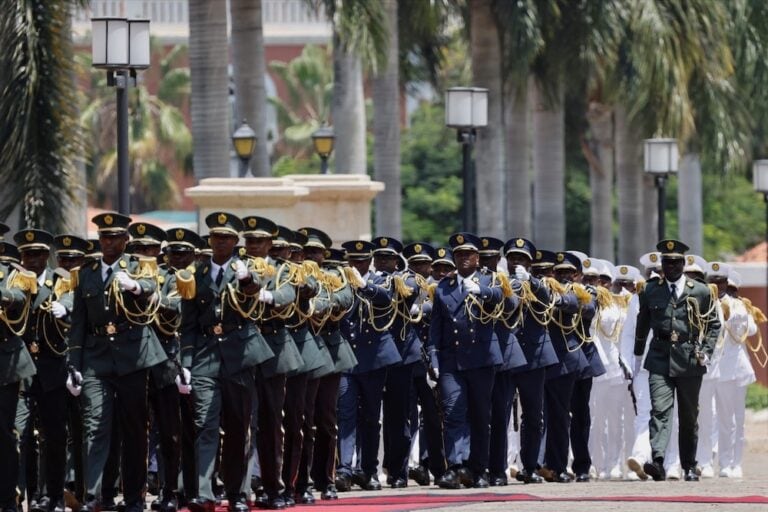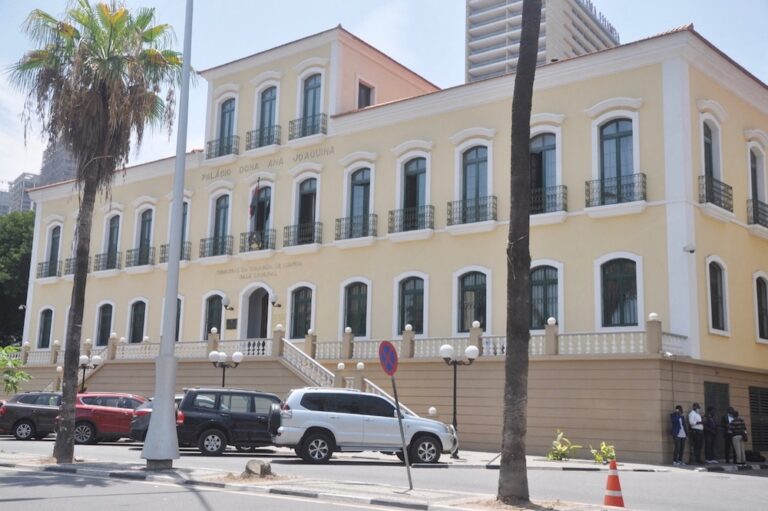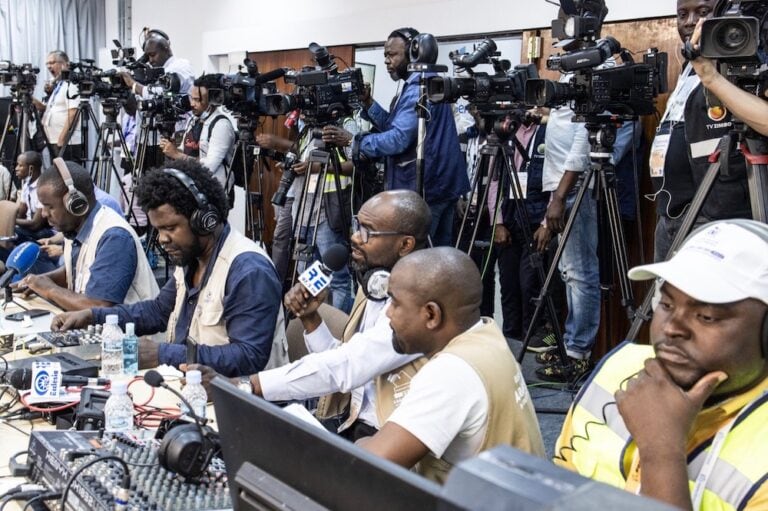"We are a simulated democracy. Angola is really a dictatorship," said Elias Isaac, country director for the Open Society Initiative for Southern Africa (Osisa).
(Index on Censorship/IFEX) – April 12, 2012 – In his 32 years in power, Angola’s President José Edouardo Dos Santos has adopted the maxim, “if you can’t beat them, buy them”. The silence of rappers, journalists and the occasional university professor has been secured for a few petro dollars, a sports car or a villa. But in the past year, new voices that won’t be silenced have emerged.
On 4 April, 2012, the country celebrated 10 years of peace. In the decade since the end of the country’s 27-year civil war, the economy has boomed and its diplomatic influence has expanded. But as war memories have receded, inequality has deepened as a tiny elite has reaped a rich peace dividend of oil and diamonds. Despite extensive infrastructure work — paid for with loans secured by oil — the majority of the population has remained poor and voiceless.
This year is due to see elections being staged under a constitutional rearrangement ushered through parliament in 2010 that critics say could give Dos Santos another 10 years in power. Most analysts expect the poll to take place in August.
Human rights activists, including Isaac, travelled to South Africa earlier this month to mark their country’s 10 years of peace and to call for more international support for those bold enough to question President Dos Santos’s rule. They said there were already clear signs of the electoral process being manipulated in favour of Dos Santos and his staunchest supporters in the ruling Popular Movement for the Liberation of Angola (MPLA).
Horácio Junjuvili, a representative of the opposition National Union for the Total Independence of Angola (Unita) told journalists in Cape Town:
“Elections must be announced with 90 days’ notice. But already, even before the poll date has been given, the manipulation has begun with the appointment of Susannah Ingles, a lawyer who is a member of the MPLA, as president of National Electoral Commission (NEC). The opposition has appealed against her appointment and we are refusing to attend NEC meetings.”
The activists said that two protests against Ingles’s appointment planned for 10 March had been violently suppressed. In the southern coastal town of Benguela, armed police used batons to break up a gathering of about 20 people. In the capital, Luanda, the days preceding the planned demonstration were marked by raids on suspected participants.
On the morning of the planned protest, 30-year-old rapper Luaty Beirâo, who was one of the organisers, was beaten at the scene of the Luanda gathering and had to have stitches to his head. Filomeno Vieira Lopes, the 57-year-old secretary-general of opposition party Bloco Democratico was beaten with truncheons and sustained wounds to his head and arm that had to be treated in hospital.
Two days later, police bearing a warrant citing “crimes of outrage against the State” descended on the offices of the outspoken weekly newspaper, Folha 8, and confiscated 20 computers. Its editor, William Tonet, said the move was in retaliation at a photomontage published in December which lampooned President Dos Santos and his entourage.
Junjuvili said opposition to the ruling clique around President Dos Santos had become more vocal and courageous since March 2011 when protests began against the high cost of living and lack of political freedom. He said:
Angola is another example of the southern African phenomenon where power that has emerged from a guerilla movement does not entertain the idea of a change of power
Marcolino Moco, who was the first prime minister of independent Angola and remains a member of the MPLA, even though he is one of President Dos Santos’s harshest critics, said the situation is worsening. ”The president’s family has bought banks, ports, telephone companies and last month he made one of his sons a director of the oil sovereign fund. He gave a television channel to another of his children. The country is run like a family dynasty.”
Elias Isaac said western countries and entities had willingly sacrificed their principles and morals so as not to lose their economic foothold in Angola and their access to its oil. ”The European Union says it cannot put human rights issues on the table because if it does so it will lose out to China. The EU has already announced that it will not send observers to the forthcoming elections. The International Monetary Fund has opted to complete its loan disbursement and to turn a blind eye on $32 billion dollars that are unaccounted for in Angola’s public accounts. We do not see any prospect of the Angolan people being helped through western or regional African diplomacy,” he said.
But there are signs that Angolan activists are becoming more bold — or at least are increasingly less likely to be cowed – as they challenge the Dos Santos empire. Rapper Beirâo, whose protest movement is called Central 7311 — named after its first demonstration on 7 March 2011 — has instructed fellow activists to gather film and photographic evidence of protests and broadcast it on social media.
In an interview with this writer in Luanda in September last year, 19-year-old psychology student Diana Perreira said young people all over the country were using phone text messages to link up and organise protests. She had been the victim of an attempted kidnapping by plainclothes officers after she attended the trial of 24 people arrested at a demonstration in Luanda on 3 September.
Perreira said: “He was a big guy with a blue T-shirt – it must have been an agent from the secret services. With a friend, I had left the court to buy some food during a break. What we understood was that it was a kidnap. It could have been just an attempt to scare us. That is how they work. They work with fear and make people scared.”
She did not wish to name the group she belongs to and said she and her friends function by forming loose associations that are regularly disbanded and re-formed to avoid surveillance. She said that with other young demonstrators she believes Angola’s wealth is being mismanaged. ”The definition I have of democracy is freedom and equality and we don’t have that in our country,” said the student.
By Alex Duval Smith, a freelance foreign correspondent, currently based in South Africa.


